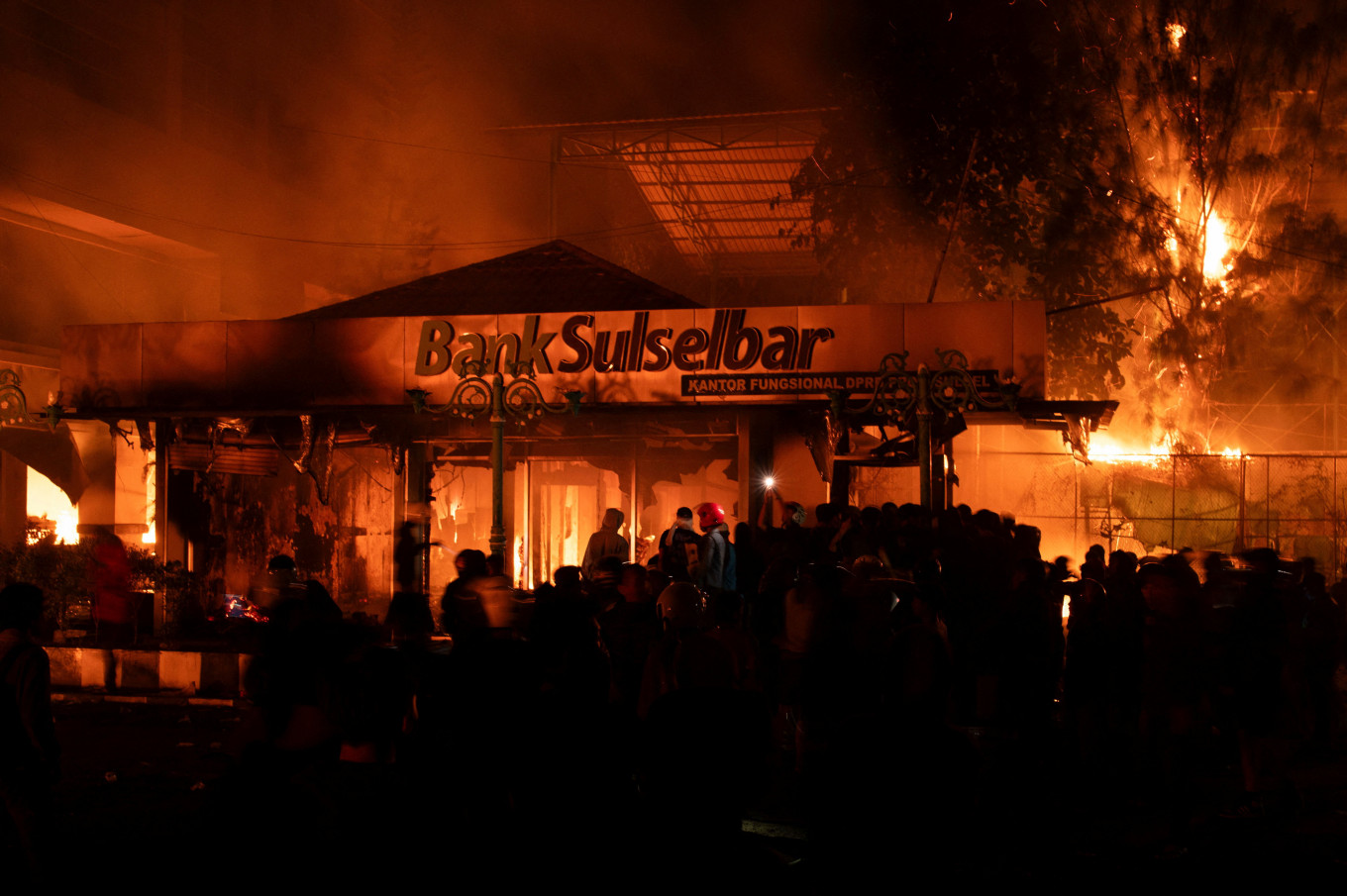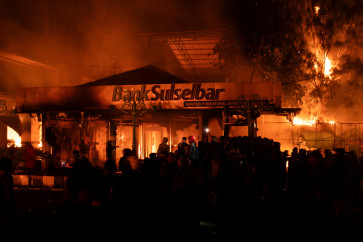Popular Reads
Top Results
Can't find what you're looking for?
View all search resultsPopular Reads
Top Results
Can't find what you're looking for?
View all search resultsAfter mass protests will our democracy survive?
If mass protests intensify beyond control, the President can declare a state of emergency, if not martial law.
Change text size
Gift Premium Articles
to Anyone
 Protesters gather near the burning Makassar City Council building in Makassar, South Sulawesi, on Aug. 30, 2025 during a protest after a motorcycle taxi driver died after being struck and run over by a police tactical vehicle during another protest against lavish allowances for House of Representatives lawmakers. (Reuters/Iqbal Lubis)
Protesters gather near the burning Makassar City Council building in Makassar, South Sulawesi, on Aug. 30, 2025 during a protest after a motorcycle taxi driver died after being struck and run over by a police tactical vehicle during another protest against lavish allowances for House of Representatives lawmakers. (Reuters/Iqbal Lubis)
A
s smoke rises from several burned legislative council buildings and thousands of Indonesians flood the streets in what has become the largest wave of protests since the 1998 Reform Era, one question hangs over us like a dark cloud: Will our democracy survive?
Mass protests, especially non-violent ones, may typically support and strengthen democracy by giving voice to the people, holding power accountable and driving necessary policy changes. However, mass protests can also be distorted or used as a pretext by authoritarian leaders to suppress dissent and undermine democratic institutions. The outcome will depend on the nature of the protest, whether violent or non-violent, and the responses of the authorities.
The current political crisis in Indonesia was sparked by something far more mundane and yet symbolically grotesque: an increase in housing allowances for members of the House of Representatives to Rp 50 million (US$3,045) per month. This policy was introduced amid worsening economic conditions, stagnant wages, the normalization of corruption cases and widespread public dissatisfaction with government services. To many, this was not just political negligence. It was a moral betrayal.
More importantly, the decision exacerbates social resentment driven by rising income inequality in the country. The total compensation received by House members, including base salary and allowances, is estimated to be about 30 to 50 times the average minimum wage, further highlighting the stark divide between political elites and ordinary citizens.
The widening income gap between state officials and the general public has become increasingly visible. The public is aware that lawmakers and government officials, especially those holding structural positions in the bureaucracy, are entitled to various additional benefits, including performance, housing and transportation allowances, and even official cars and drivers.
The World Bank highlights that Indonesia faces rapidly rising income inequality, with significant drivers including unequal access to quality education, a divided labor market with skilled workers benefiting disproportionately, and a lack of adequate social protection programs for the poor.
Unfortunately, efforts to reduce poverty and inequality, such as fiscal reforms and investments in social services, have had limited success, particularly in enhancing the effectiveness of social spending and increasing tax revenues to fund pro-poor policies.


















